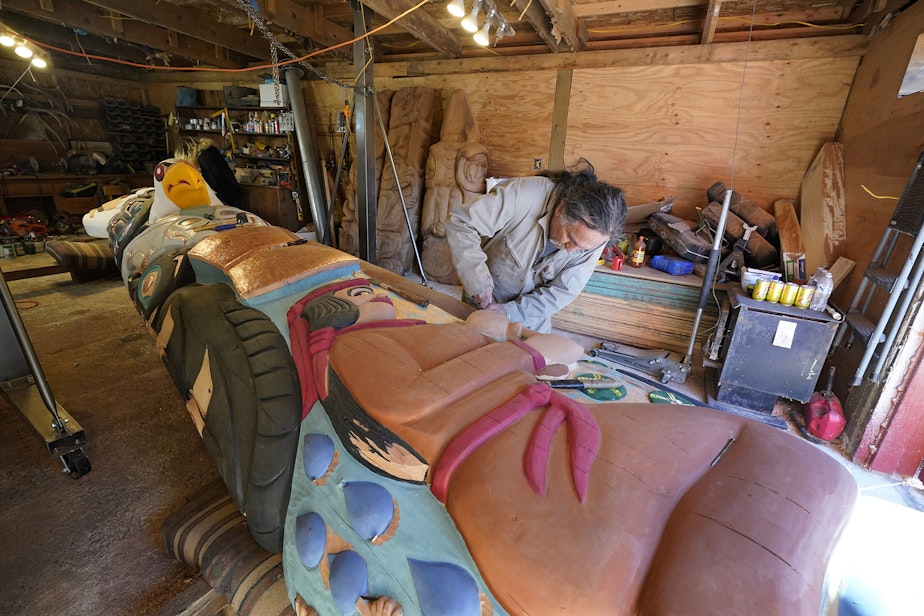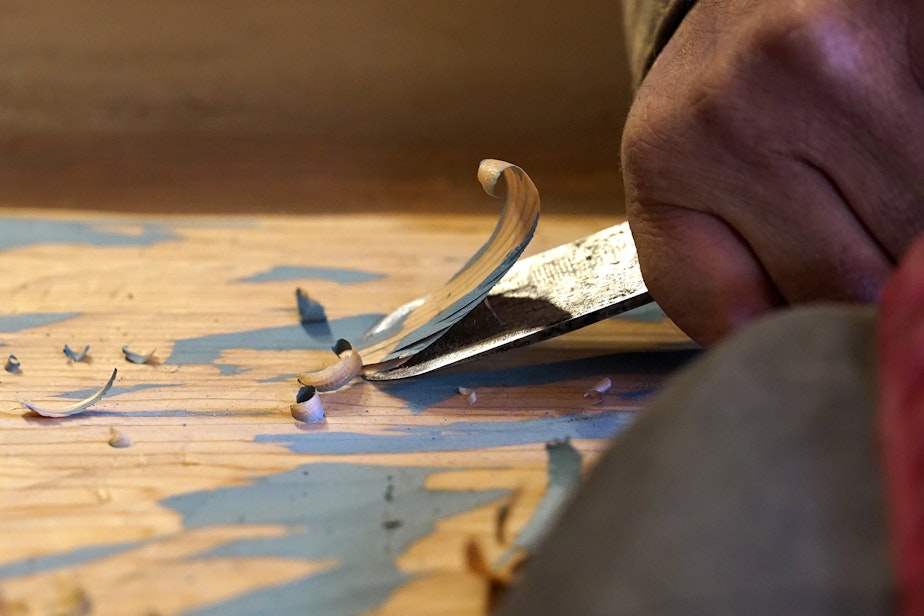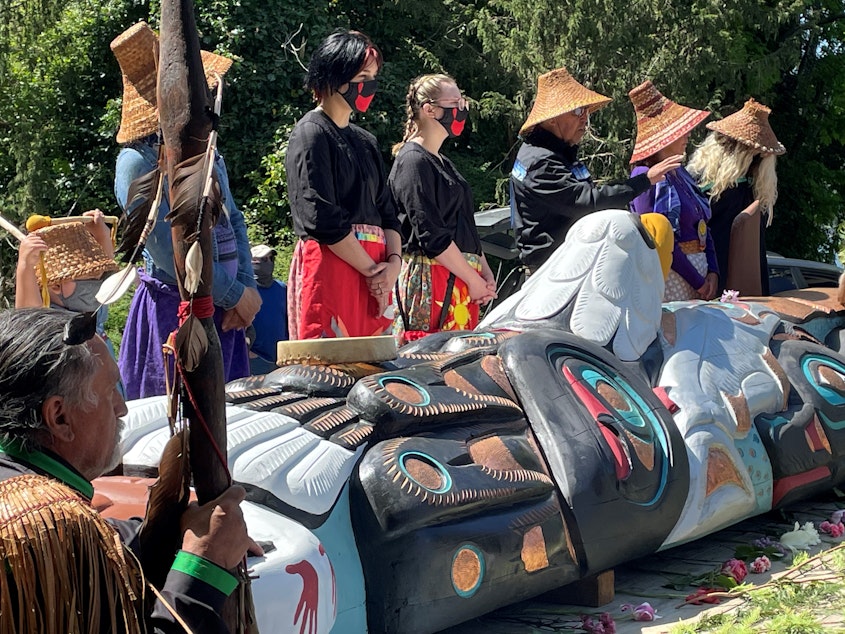From sacred lands to D.C., this Lummi totem pole carries a message with it

The 24-foot totem pole has traveled from the Lummi reservation near Bellingham to Orcas Island. It's one stop on a much longer journey to Washington D.C. this summer to highlight environmental threats that Indigenous peoples face in North America. It’s being called the Red Road to D.C. tour.
“You might feel that little breeze come whisper something into your ear today. It's so beautiful to be here, amongst the ancestors,” said Freddie Lane, the road manager for the trip.
Lane is speaking near an ancestral burial ground on a small peninsula called Madrona Point, which reaches out into the waters of the Salish Sea.
According to archeological evidence, the Lummi and their ancestors have lived in the San Juan islands for thousands of years, at least. In the late 19th and most of the 20th centuries, Madrona Point was in private, non-Native hands. Then, several decades ago, the Lummi joined forces with some Orcas Island residents to defeat a proposed 80-condo development, and to give the Lummi title to the land.
That conflict captures the essence of this cross-country tour.
“We battled to protect Madrona Point, not just for us, but for the people on the islands. They can meditate here. It's important that we have places where we find harmony and tranquility,” said master carver Jewell James.
Organizers are sending the totem pole as a gift to the Biden administration, in part to ask for the protection of other sacred places under threat of development.
Stops on this tour will include the Bears Ears National Monument in Utah, the Dakota Access crude oil pipeline, and other sites where tribes and environmental groups have been fighting to protect sacred lands and water.

“It's easy to say, 'Oh, it's just one sacred site, you'll find another.' The problem is, is the world is on the verge of dying," James said.
Then, he corrected himself.
"Well, that's what we say. To tell the truth, the world will go on, and we will disappear. We're not essential to the earth. We're more like a virus. We’re the Coronavirus for the Earth,” James said.
The 24-foot-tall totem pole James and his team carved from a 400-year-old cedar tree tells a story, too.
One of the most prominent features is a diving eagle, which represents "strong leadership and spirituality." Those are qualities the Lummi are hopeful to see from President Biden and his new administration, including Deb Haaland, who is the first Native cabinet secretary.
Below the eagle, there are two Chinook or King Salmon.
"You know, we're going into areas where salmon are nearing extinction levels, we're going to go up into the Snake River," he said.
Salmon travel up to 900-miles to spawn on the Snake, but first they need to get past four giant dams on the lower Columbia River, and four smaller dams on the lower Snake. Northwest tribes including the Lummi say those Snake River dams should be breached to help salmon recover.
Republican Congressmember Mike Simpson from Idaho recently floated a proposal to breach the dams as part of the Biden administration's gigantic infrastructure package.

Other Northwest Republicans opposed the proposal, as have leading Democrats in Washington state including Senator Patty Murray and Gov. Jay Inslee.
The Red Road to DC Tour heads to Seattle's Victor Steinbrueck Park this Saturday, and heads out across the county on July 14.




